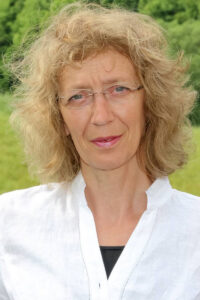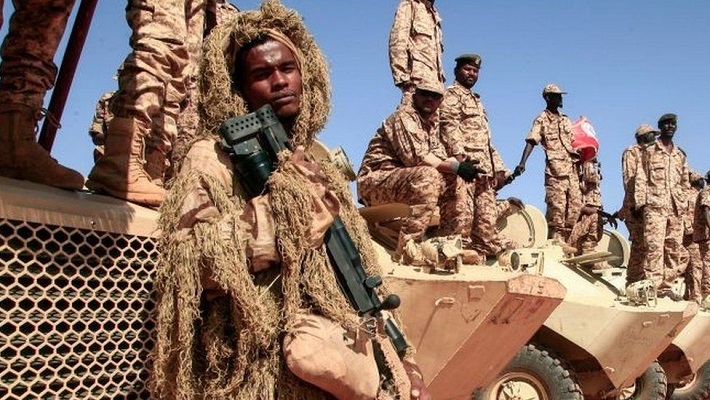By Paschal Norbert
SWEDEN, SEPTEMEBER 12, 2023 (CISA)- Marina Peter, one of the most recognized ecumenical experts on Sudan and South Sudan has penned down a rumination about the decade-long conflicts and elusive peace in the countries, arguing that based on the current prevailing conditions in the region, a peaceful agreement on a ceasefire and lasting peace is highly unlikely.
“The current state of the country, of the region, the continent and of the whole globe with their dynamics, tremendous challenges and polarization make it highly unlikely that something that deserves the word peace will prevail in Sudan any soon. To the contrary: I am afraid, the worst is still to come, and we all better prepare for it,” Marina wrote in her reflection on ‘Possibilities for Peace in Sudan’.
In the document shared with CISA and dated September 8, the chairperson of the Sudan and South Sudan Forum e.V., an organization based in Germany that advocates for peace, bases her assessments on her experience working in the country for years and the countries’ intertwined history of violence and political instability.
She says, “My first visit to Sudan and my first direct encounters with the wonderful people of Sudan were at the end of 1986 – nearly four decades ago. Already by then, I thought the situation could not get worse, with the very hot and dry, in parts in human climate; the poverty, the hunger, the displacement; with people in Darfur just trying to deal with the aftermath of the terrible famine of 1983; with the Sharia laws, the many human rights abuses; with the war in South Sudan and parts of the Nuba Mountains, in Blue Nile and in Eastern Sudan, and with IDPs struggling for survival in camps on dump sides in the capital, e.g. But of course, it could get worse.”
Marina says the divide-and-rule policy of both Sudanese governments, in which ethnic militias are being used to fight wars is one of the major drivers of the unending conflict. She states that this practice leaves the majority of the civilian population armed and ready to engage.
“In 1989 the National Islamic Front, later renamed into National Congress Party, made a coup under Omar al Bashir. People were only able to topple their regime 30 years later. When in 2005 the peace agreement with South Sudan was signed, Darfur was already set into flames by the Sudanese army, or better to say their allied militia. Until today (South) Sudanese people suffer from the divide-and-rule policy of Sudanese governments – and the government of South Sudan, independent since 2011, practising the same: Using ethnic militias to fight their wars for them, leaving uncountable arms in the hands of nearly everybody,” she notes.
Marina also blames the inheritance of a highly elitist and politically dominant bureaucracy, in which ruling elites with no desire to develop their communities control the socio-economic structures of society much to the deprivation of the people.

“Elites are plundering the wealth of the country, may it be gold, oil, fertile land or just peoples’ private property. Elites with no interest in, let alone working for the wellbeing of their people, paired with vested interests from outside players to take their share of the wealth or to pursue their own military-strategic goals. Exactly this pattern caused so many conflicts in Sudan, and is, what we see today again. New is only that this time the war reached the capital, too; the nearly unthinkable scale of violence, brutality, looting, raping, displacement as well as the speed, in which the country is being ruined,” she states.
In her submission, Marina says her pessimistic views are on the fact that military confrontations like the one in Sudan either need to get fixed within the very first weeks or they will drag on for a long time. She gives examples of the war in Ukraine, Syria, Libya and Ethiopia, pointing out that the longer the war drags out, the higher the chances of many other armed actors getting involved.
“Already only 5 months into the war, it seems, that both SAF and RSF central commands might not be fully in control of their forces any longer. Armed groups are partly just acting like bandits; some armed groups are trying to resolve old conflicts over resources in a particular area, like the Salamat and Bani Halba clans in Darfur, originally part of RSF; others are paid mercenaries from outside – like Wagner troops, or soldiers from Chad, Mali, Niger and Libya on the side of the RSF who might like to stay forever as war is what they make their money with; and partly they are “old groups” like the SPLM/North Al Hillu in South Kordofan, misusing the situation for a new war against SAF,” she says.
Marina posits that the longer the war continues; it also increasingly gets tribalized and may even expand beyond the borders of Sudan. She argues that there are also “far too many peace initiatives” running concurrently “competing even, and thereby giving room for armed forces to play their own game.”
“The most prominent is the initiative by the US together with Saudi Arabia in Jeddah, but there are initiatives by IGAD, by the AU, by Egypt, and even Israel offered to mediate; of lately SAF general Burhan asked South Sudan’s president Salva Kiir to fix it, who anyway is already part of the IGAD initiative, rejected by Burhan because of Kenya’s suspected role,” she notes.
Marina cautions that “If there is an honest interest in a peaceful future for Sudan, the international community needs to agree on one platform only, which must fully integrate Sudanese civil partners from the very beginning.”
She maintains it is not possible to have a sustainable peace deal between RSF and SAF in Sudan if only the two groups are involved in negotiations. In her opinion, RSF, SAF and all other armed groups need to be part of the ceasefire mechanisms.
“If anybody believes any sustainable peace deal would be possible with RSF and SAF only, he or she misses the point completely. But including all other armed groups who are equally lacking (clear) objectives will also not work. Armed forces – SAF, RSF or militias/other armed forces – need to be part of ceasefire mechanisms and regional/local peacebuilding efforts. But they shall never be part of any political settlement again. A settlement must be discussed, to be negotiated, to be agreed upon and to be implemented in an inclusive process by civil Sudanese themselves however long it may take,” she notes.
For Marina, the future is not all gloom for Sudan and South Sudan. She says the hope is in the young generation of Sudanese to find the solutions for lasting peace in their countries.
“Of course, nothing is forever, and, as Nobel Peace laureate Desmond Tutu once said: We are all slaves of hope, rightly so, I would even add. Giving up is never an option, and there are so many great Sudanese keeping on working for peace, old ones, and especially also the young ones, the backbone of the peaceful revolution of 2019/20, the ones who at this moment do their outmost again to assist their fellow countryman and women in any way possible. They all are the ones who will find a solution- the sooner, the less outsiders with their own agenda interfere,” she maintains.

